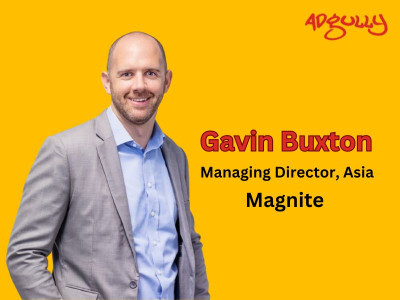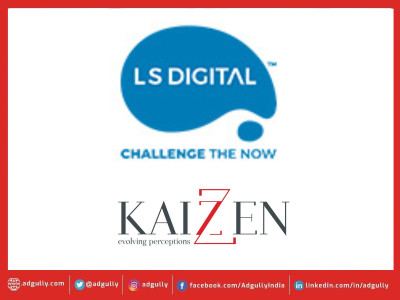Exclusive: World PR Day Part 1 - The state of Public Relations industry today
Public relations, as a profession, has witnessed a significant transformation over the years. From its early roots in publicity and media relations, it has grown into a multifaceted discipline that encompasses strategic communication, reputation management, crisis response, stakeholder engagement, and more. PR professionals today play a crucial role in building and maintaining mutually beneficial relationships between organisations and their stakeholders.
World PR Day is an annual event celebrated on July 16, dedicated to recognising the importance of public relations in today’s interconnected world. It serves as a platform to acknowledge the role of PR professionals in shaping public opinion, fostering meaningful relationships, and driving effective communication strategies.
This World PR Day, Adgully reached out to a cross-section of India’s leading PR and Communications professionals to seek their views on where the PR industry stands today.
Bhaskar Majumdar, Head - Corporate Affairs, Communication, CSR & Digital, Egis India:
“The public relations industry, since the very beginning, embraced ‘Relationships’ or ‘Media relations’ as the end all of success. Over the years, it evolved, it became a sophisticated approach of creating the Strategic Narrative to creating right Messaging to targeting the right audience in the best possible way in a well-planned way. COVID has fast-forwarded the adaptation of the digital transformation.
Consumption of news has become digital because of Lockdown. During the Lockdown, the print copies of newspapers were not available, and the adaptation of digital news was predominant. The emergence of social media and digital transformation has changed the entire landscape of communication, especially Public Relations. With Digital Media and Social media increasingly becoming a de-facto choice for content consumers, there has been a paradigm shift in the role of PR professionals and corporate communications experts too, a move away from relying only on media relations to a more Strategy-centric approach – an Omni channel integrated one.
Post-COVID, the role of Corporate Communication has become multi specialty outreach, the modern Corporate Communications function is agile, multidisciplinary, and insights-driven.”
Mahima Misra, Head of Public Relations, Good Glamm Group:
“The PR industry is constantly evolving in response to technological advancements, societal changes, and cultural shifts. As it stands today, the PR industry has adapted to the changing media landscape by focusing on digital PR, storytelling, and integrating with marketing. Data and analytics play a crucial role in measuring campaign effectiveness, while online reputation management and influencer marketing have gained a lot more prominence today than it did a few years ago. Influencer marketing has emerged as a popular PR strategy. By partnering with influencers, brands can amplify their reach, generate authentic content, and enhance brand credibility.
The one constant though in this ever-changing industry is the importance of building trust with the audience, which comes from ethical practices, transparency and most importantly honesty.”
Ajey Maharaj, Head of Corporate Communications, Fortis Healthcare:
“The entire communications landscape has undergone a titanic change – from fostering relationships with multiple stakeholders to integration with AI. Not just the interventions, but the impact/ KPI have evolved – to changing public-centric policies or raising public awareness to improving societal, environmental and economic impact.
Digital Transformation: The rise of digital media has had a significant impact on the PR industry. PR professionals now need to adapt to the evolving digital landscape, including social media platforms, online news outlets, and influencer marketing. Digital PR strategies, such as content marketing and online reputation management, have become increasingly important.
Importance of Authenticity: In today’s highly connected world, authenticity and transparency have become vital for effective PR. Audiences are more discerning, and they expect honesty and integrity from the brands they engage with. PR professionals need to focus on building authentic relationships, promoting genuine storytelling, and addressing public concerns openly.
Influencer Marketing: Influencer marketing has gained prominence as a PR strategy. Brands collaborate with influential individuals on social media to reach their target audiences more effectively. Identifying relevant influencers, building partnerships, and measuring the impact of these collaborations have become important aspects of PR campaigns.
Crisis Management: Crisis management remains a critical aspect of PR. With the speed at which news spreads through digital channels, organisations must be prepared to respond swiftly and effectively to negative events or controversies. PR professionals are expected to develop crisis communication plans, monitor online conversations, and address issues promptly to mitigate reputational damage.
Data and Analytics: PR professionals are increasingly relying on data and analytics to inform their strategies. They use tools to monitor media coverage, track social media engagement, measure campaign effectiveness, and gain insights into audience sentiment. Data-driven PR enables practitioners to make informed decisions and demonstrate the value of their efforts to clients.
Integration with Marketing: PR and marketing are becoming more integrated, as both disciplines work towards achieving common goals. PR professionals are collaborating closely with marketing teams to align messaging, amplify brand reach, and ensure consistent communication across different channels. This integration helps create a unified brand image and maximises the impact of PR efforts.”
Atul Raja, Marketer, Brand Builder, Communication Expert and Strategist:
“The PR industry in India is at a crossroads today. Despite making significant progress in the last decade, it still faces multifarious and complex challenges that need to be addressed urgently with a more strategic, data-driven, and accountable approach. As the demand for PR professionals increases, talent acquisition and retention, especially in specialised domains such as healthcare, technology, and finance, has also become a big issue, along with rising costs and overheads.”
Girish Huria, Head of Growth, APAC and EVP, Avian WE:
“The world today stands on the threshold of a new global order. A new era is upon us, ushered in by a string of challenging events over the last three years. However, the public relations (PR) industry has stood strong against the odds. Be it post-pandemic recovery, the tragedy of war, rampant inflation, and a global energy crisis – the PR industry has adapted to these circumstances with grit and ingenuity.
The industry is now at least a $20 billion business globally and growing faster than either the advertising sector or the marketing sector.
Today, the PR industry not only has a powerful voice, but it also has the means to amplify it. We have a seat at the table and are fusing data-driven insights, digital marketing and traditional public relations to drive strong business outcomes for our clients.”
Pooja Chaudhri, Executive Director, Concept PR:
“In India, I believe the PR industry is on the cusp of evolving beyond its PR 2.0 phase. If PR 2.0 meant getting close to the target audience by using Social Media and other tools, I think the industry today is learning to let go of pure public relations strategies. Agencies need to rethink communication as a process that helps clients, brands, etc., speak clearly and effectively with their audiences, in their own language and convenience.
Agencies that are more nimble in their approach, having greater access to research and can converge digital and traditional ways of thinking, will be equipped to serve their clients better and grow, as well.”
Harday Gupta, Founder & Director, The Right PR:
“The public relations sector is essential for creating favourable public perceptions as well as overseeing interactions among organisations and their stakeholders. Several significant changes have occurred within the sector. The emergence of digital platforms as well as the use of social media has altered the landscape of public relations. Digital channels are becoming increasingly utilised by public relations specialists to communicate with audience members, monitor dialogues, as well as convey info swiftly and efficiently. The explosion of technology has certainly had an influence on the sector. Digital platforms such as social networking sites, and influencer marketing are all utilised by PR professionals to interact with target audiences, enhance brand messaging, and monitor dialogues.”
Rucha Bhalekar, Director - Corporate Communications, FCB Group India:
“Public relations is currently undergoing a big transformation in 2023, driven by the accelerated evolution of the digital landscape and emerging trends. Most of the PR industry is actively adapting to these changes to meet the ever-evolving choices of audiences and achieve great results. One big emerging trend is using AI-powered tools for campaign execution and personalisation.
These tools enable professionals to develop their targeting capabilities, optimise messaging, and customise communication efforts to specific target audiences. By harnessing the power of AI, the PR industry can better streamline its operations, improve efficiency, and deliver more impactful campaigns. Authenticity has emerged as a key factor in effective PR strategies. Brands recognise the significance of legitimate and transparent communication with their TG.”
Madhukar Kumar, Founder & Chief Strategist, Grey Cell PR:
“Numerous sectors today are feeling the impact of AI’s rising power. However, as most of these AI and digital capabilities focus on communication, the PR industry is experiencing the most immediate and significant effects, resulting in a state of flux. Rapidly evolving, the industry is adapting to these new technologies and trends. The rise of digital media, emerging AI tools, and their quick adoption are profoundly changing how PR professionals perform their jobs to deliver effectively.
One of the largest challenges the PR industry faces today is the spread of misinformation. In a world where anyone can publish anything online, it is more crucial than ever for PR professionals to assist their clients in controlling their message and protecting their reputation.
The PR industry is also grappling with an increasing demand for accountability. In the past, PR professionals were often labelled as “spin doctors”, who prioritised manipulating the media over honesty. However, today’s PR professionals face mounting pressure to be transparent and accountable for their actions.
Talent poses another challenge for the industry. While we highly value new talent’s innovative spirit, we’ve noticed deficiencies in patience, discipline, and comprehensive technological knowledge – elements critical to the PR industry. Young professionals often excel in digital tools and bring fresh perspectives, yet they sometimes lack a deep understanding of business fundamentals and hands-on experience in managing complex scenarios. While digitally savvy, their abilities to communicate effectively in person and build strong relationships often lag due to an overreliance on technology. They also struggle to balance the fast-paced, evolving digital world with the long-term strategic planning required in the PR industry. Finally, they might lack the patience and perseverance necessary for long-term success, as they are more accustomed to the instant gratification of the digital age.”
Faiza Kapoor, Co-founder, Mondial Kommunications:
“PR has morphed into a modern marketing tool that supports sales, research and planning and a bunch of other functions while closely working with leaders to identify and solve problems, and mitigate risks. Today, disruptive PR campaign ideas have brought brands under the spotlight and creative storytelling is responsible for consumer engagement. A press release has become a mere tool to communicate developments and PR professionals are no longer messengers but enablers.”
Dr Sarvesh Tiwari, Founder & Managing Director, PR Professionals:
“The PR industry is currently at a stage of brisk growth. There is wider acceptance and deeper understanding of public relations skill as well as business of scale. As a practice that took off rather late in India, it has been well received and is being incorporated by companies at the level of strategy becoming integral part of the business model itself. While large corporations and international organisations were the ones that took advantage of PR in building their reputation and also improving their business conditions, government organisations and NGOs are not lagging behind anymore. It is now seen as an effective means of credible outreach for immediate as well as long term benefits not limited to image building alone. The start-up culture that is a recent phenomenon is using PR so well to its own advantage.”
Sahana Rai, Founder/ CEO, Glocal Brand Solutions:
“I have noticed that the field of PR is rapidly changing. Specifically, there seems to be a heightened awareness of PR in the start-up industry where we are focussed. As a PR professional, it’s an exciting and nerve-wracking time. Technology has made our lives easier in some ways, such as providing us with content and ideas at the click of a button. However, it has also made us complacent by offering easy solutions. Therefore, now is the time to push our boundaries and tap into our creativity. To do this, we must invest more time in reading, unlearning old practices, and learning new tools and skills. We are in a transitional phase, and much is still to unfold.”
Girish Bala, Founder and Managing Director, ON PURPOSE:
“There has never been a greater need for authentic, trusted communications as brands and organisations navigate the reputation risks of AI generated mis-information, a polarisation of views on the importance of ESG and consumers who are fed up of being marketed to. The PR industry will have an opportunity to rise to these challenges by showing boardrooms the mirror and being the outspoken conscience of the organisation to protect and build long term stakeholder relations.”
Aanchal Kohli, Head of Corporate Communications, SoCheers:
“Observing the PR industry in its current dynamics, we witness a landscape undergoing technological advancements and evolving communication channels. Today, traditional media, digital platforms, social media, and influencer marketing all play a significant role, unlike the past years. All these platforms have revolutionised the way we engage with audiences. And, this shift has propelled PR professionals to become quick-witted storytellers, adapting to the fast-paced mediums and harnessing the power of data-driven insights to drive impactful campaigns. Today, PR professionals not only effectively communicate messages but also serve as strategic advisors, guiding organisations through the complex terrain of public opinion, crisis management, and reputation building.”
Madhurima Bhatia, Media Engagement & Partnerships Lead, Ipsos India & APEC (Asia Pacific Excluding China):
"Earned media will continue to play a pivotal role in PR - as it provides credibility, visibility, informs and enhances reputation. PR will also lean a lot on Owned Media for amplifying key messages across digital & SM platforms to drive up engagement. I also foresee increased usage of AI in providing efficiencies for distribution and measurement of PR work. AI will work in synchronity with the PR department. Writing of course will still rest with the experts, but the basic legwork of building the framework can be done by AI."
Dr Navneet Anand, Founder & Director, GreyMatters Communications & Consulting:
"Indeed, over the past decade, public relations in India has experienced a remarkable transformation and has gained immense significance in the communication landscape. It has shifted from being perceived as a side dish to becoming an essential ingredient, much like salt in our main course. The growth and evolution of public relations as a profession can be attributed to several factors.
Firstly, as businesses have expanded, the economy has grown, and industries have become more competitive, the need for effective and professional communication has become increasingly evident. Organizations, both in the private and public sectors, have recognized the crucial role of PR in managing their reputations and engaging with stakeholders. This recognition has propelled the growth of the PR industry, leading to the emergence of numerous agencies and independent professionals seeking to leverage this opportunity.
Today, the PR industry in India is more robust than ever, with players ranging from large multinational corporations to smaller agencies, making the space highly dynamic and exciting. The presence of diverse players has contributed to the overall growth and development of the industry, offering clients a wide range of choices and expertise."
"The fact that companies are now looking at PR as a potential solution to a business problem is a big mindset shift I have observed in the last couple of years. As a result, considering PR as part of the marketing ecosystem (as it rightfully should be) is another trend in the works. This means moving beyond the realm of owned media and truly looking at different channel mixes is slowly becoming a reality. That brings me to the next observation that integrated services--not necessarily just from a channel standpoint—are going to be the way forward in the years to come. And finally, data is king today, be it storytelling or measurement. "
Maddie Amrutkar, Founder & CEO, GladUCame:
“The PR industry plays a crucial role in shaping public perception and managing communication for individuals, organisations, and brands. As of today, the PR industry has evolved significantly due to advancements in technology and the changing media landscape. Here are a few key observations:
Digital media integration: With the rise of social media and online platforms, public relations professionals have had to adapt their strategies to include digital media channels. They are now concentrating on developing an online presence, engaging with audiences via social media, and monitoring online discussions about their clients.
Transition to storytelling and content creation: Traditional press releases and media pitches are no longer adequate. Creating compelling narratives, producing multimedia content, and leveraging influencers to amplify messages are all part of this.
Emphasis on reputation management: In this day and age of instant information sharing, reputation management is critical. PR professionals work hard to protect and enhance their clients’ reputations by anticipating problems, managing crises, and monitoring online sentiment.
Data-driven decision making: Public relations professionals are increasingly relying on data and analytics to determine the effectiveness of their efforts. They use tools to monitor social media metrics, track media coverage, and analyse audience engagement. Data-driven insights assist them in refining their strategies and demonstrating the value of public relations to clients.
The growing importance of influencer marketing: Influencer marketing has grown in popularity in recent years and continues to shape the public relations industry. PR professionals understand the importance of influencers in reaching out to specific audiences and establishing genuine connections. They work with influencers to spread messages, increase engagement, and broaden the reach of their clients' campaigns.”
Shutapa Paul, Founder, Dharma Media Consultants:
“The PR industry has undergone notable changes due to the evolving media landscape. The rise of digital media and social media platforms has significantly impacted the industry. Traditional PR practices now receive limited attention, unless there is a major announcement. Journalists show a preference for larger brands and industries and fighting for their attention is an ongoing challenge. However, one aspect that continues to dominate the industry is the art of creating compelling narratives and storytelling. Data-driven, insightful, well-researched pitches have been conquering the industry and taking brands to greater heights.”
Bhaskar Tare, Director, Gloocal Communications:
“PR is a very important part of any organisation or brand. To craft and build a positive brand image is the main objective, which PR agencies follow and deliver results to keep brands in media or visibility among stakeholders through prominent media outlets. Recent years the Indian PR landscape has evolved in many aspects and it has now become an essential part of any business. Those are days where press releases were working and all media we’re picking it as it is. But, the traditional approach and new age media’s requirements changed and therefore the trend of breaking news came and then every journalist we’re looking for exclusive stories. Now unique strategies, its implementation through PRable activities and engaging effective content which can help customers or target audience to engage and redirect them to the brands own website.”
Sonam Shah, Founder and CEO, Treize Communications:
“Public Relations has evolved a lot over the last few years. With digital and social media accelerating speed across industries, PR too has changed drastically. Digital intervention has increased the awareness of PR and the importance it holds in today’s time.
Earlier, PR as a tool was used by big companies, which needed media support, but today, with Digital PR taking the front seat, brands and companies of all sizes understand the need for it. PR is no more an option, but a necessity of businesses and that awareness is present in the market.
While this evolution is taking place, it’s interesting to know that only Digital PR is not something companies and brands are looking at. Print and Electronic mediums still hold very high importance. Audiences still value long reads, in-depth articles and hold a stronger trust in print media. This makes it an interesting path to tread and explore further.”
Jagriti Motwani, Co-founder and Chief, Cha-Chi:
"The PR industry has evolved significantly over the years, adapting to the changing media landscape and technological advancements. Today, PR professionals play a crucial role in managing the reputation and image of individuals, companies, and organizations. With the rise of social media and the 24/7 news cycle, the demand for PR expertise has increased.
In recent years, PR has become more integrated with other marketing and communication disciplines. PR professionals now work closely with advertising, social media, and content marketing teams to create cohesive and persuasive brand stories. This integration has led to a more strategic approach to PR, aligning public relations efforts with overall business objectives.
Looking ahead, the PR industry is likely to continue evolving to adapt to new technologies and communication channels. With the growing influence of artificial intelligence and automation, PR professionals may need to embrace data analysis and measurement tools to track the effectiveness of their campaigns. Additionally, as the world becomes more connected through digital platforms, PR professionals will need to be skilled in managing online reputation and crisis communication."
Priti Tiwari, Senior Manager, Corporate Communications at ting:
“As I observe the PR industry today, it has become more dynamic than ever before due to technical advancements and AI coming to the forefront.
The PR approach has shifted towards more tailored messages and data-driven campaigns. Therefore, PR professionals are required to be more effective and efficient, striking a balance between fast-paced technology and human relations, and being forced to find creative opportunities to help our clients.”
Arjun Ramesh, Senior Tech PR Consultant:
“The PR industry has evolved significantly over the past couple of years, adapting to new challenges and leveraging technology to shape public perception across multiple touch points. Strategic thinking and data-driven decision making have become essential for successful brand reputation management across industries. At the same time, focus on influencer relations has become essential to enhance the brand’s message and visibility.”
Dipanshi Ramraika, Head PR at Nofiltr social Llp:
"Today, the PR industry serves as a vital bridge between brands and creators, harnessing the power of collaboration and authentic storytelling. We see a landscape where influencers, content creators, and digital tastemakers play a pivotal role in shaping public perception and driving meaningful conversations. As we look ahead, I envision the PR industry taking on a more collaborative and inclusive form, with a deeper understanding of the creators' value and their unique voices. It will embrace new media channels, emerging technologies, and data-driven insights to amplify their impact. The future of PR lies in fostering genuine connections, championing diversity, and empowering creators to be influential voices of change. As we harness the power of Public Relations, we embark on a journey where mutual respect, purpose-driven campaigns, and the dynamic synergy between agencies and creators will redefine the industry, shaping a future where creativity and authenticity reign supreme."











































Share
Facebook
YouTube
Tweet
Twitter
LinkedIn